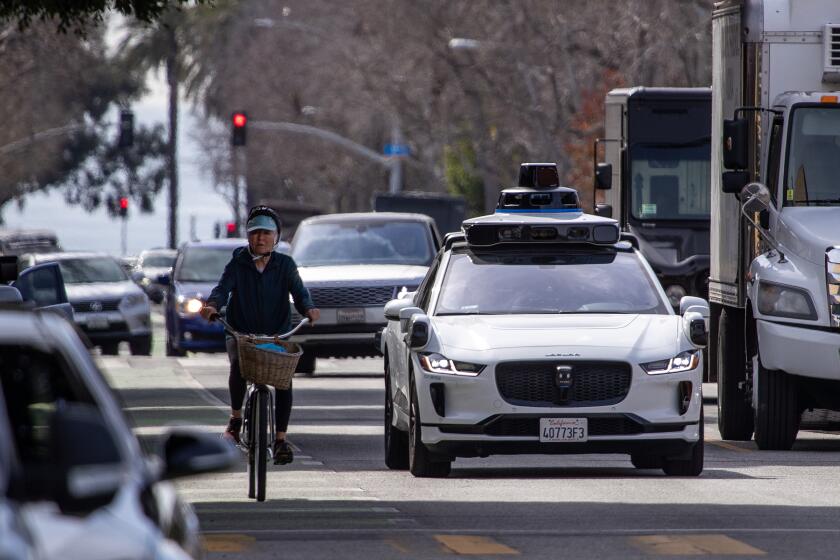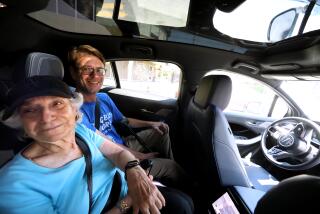A woman was dragged by a self-driving Cruise taxi in San Francisco. The company is paying her millions

- Share via
General Motors’ autonomous car company, Cruise, has reportedly agreed to pay an $8-million to $12-million settlement to a woman who was hospitalized after getting dragged along the pavement by a self-driving taxi in San Francisco last year.
The woman, a pedestrian, was struck by a hit-and-run vehicle at 5th and Market streets and thrown into the path of Cruise’s self-driving car, which pinned her underneath, according to Cruise and authorities. The car dragged her about 20 feet as it tried to pull out of the roadway before coming to a stop.
She sustained “multiple traumatic injuries” and was treated at the scene before being hospitalized.
It’s unclear when the settlement was reached or the exact amount, sources familiar with the situation told Fortune and Bloomberg. The condition of the woman, whose name was not released by authorities, is unknown, but a representative of Zuckerberg San Francisco General Hospital told Fortune that she had been discharged.
Cruise initially said that its self-driving car “braked aggressively to minimize impact” but later said the vehicle’s software made a mistake in registering where it hit the woman. The car tried to pull over but continued driving 7 mph for 20 feet with the woman still under the vehicle.
“The hearts of all Cruise employees continue to be with the pedestrian, and we hope for her continued recovery,” Cruise said in a statement.
Waymo, the self-driving taxi company owned by Google’s parent, Alphabet, gets the green light to expand its robotaxi service to Los Angeles County.
Cruise halted its driverless operations after its autonomous taxi license was suspended by California’s Department of Motor Vehicles. The company was also accused of lying to investigators and withholding footage of the car crash.
Cruise said this week that it would start testing robotaxis in Arizona with a “safety driver” behind the wheel in case a human needs to take control of the vehicle, according to a company news release.
“Safety is the defining principle for everything we do and continues to guide our progress towards resuming driverless operations,” according to the release.
More to Read
Sign up for Essential California
The most important California stories and recommendations in your inbox every morning.
You may occasionally receive promotional content from the Los Angeles Times.












